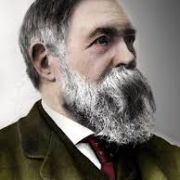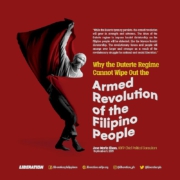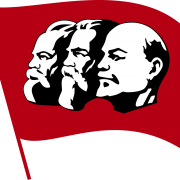Q and A on Socialism: Utopian and Scientific
This question-and-answer session on Friedrich Engels’ popular work Socialism: Utopian and Scientific is part of the continuing study program by Anakbayan-Europa through its ND Online School. It is the fifth in the ongoing ND Online series on Engels’ selected works, on the occasion of the 200th anniversary of his birth.
Q and A on Socialism: Utopian and Scientific
Questions from the Host, Anghelo Godino of Anakbayan-Europa, ND Online School
Answers by Jose Maria Sison
Chairperson Emeritus, International League of Peoples’ Struggle
November 29, 2020
1. Please tell us briefly the context of the time Engels wrote Socialism: Utopian and Scientific. What was the political context at the time that pushed him to write it?
JMS: As background, let me cite the fact that in the Communist Manifesto of 1848, Marx and Engels had already differentiated Scientific Socialism from Utopian Socialism of three kinds:
a. The first kind is Reactionary Socialism which includes the Feudal Socialists, the Petty-Bourgeois Socialists, and the German, or “True” Socialists. All of these groups hanker for a return to the life of the monastery and the guild and reverse the rise of the bourgeoisie and modern industry, without recognizing the historical process the bourgeoisie represents.
b. The second kind of Socialism is Conservative, or Bourgeois, Socialism. It reflects the desire of a segment of the bourgeois to redress social grievances, in order to guarantee the continued existence of bourgeois society and promote the mutual interest of the workers and the bourgeoisie.
c. The third kind is Critical-Utopian Socialism and Communism. It originated with the first attempts of the proletariat to achieve its own class interest. The attempts were limited by the fact that the proletariat had not yet reached the maturity and economic conditions necessary for emancipation. These socialists therefore looked for social laws, projects and movements to free the proletariat.

It was 1880 when Engels wrote Socialism: Utopian and Scientific or extracted parts of Anti-Dühring in order to compose it, with the definite purpose of popularizing Scientific Socialism among the workers. Marx agreed with Engels on the need to popularize Scientific Socialism in view of the difficulty of reading the complex text of Das Kapital and other works of Marx and the commonplace or average notions about socialism circulating which did not distinguish scientific from utopian socialism.
Engels considered it necessary for him to popularize Scientific Socialism because Dühring gained a following within the German Social Democratic Party with his kind of utopianism and fantasies most detached from material reality and social history and yet posing as scientific and mocking the fantasies of the utopian socialists. Engels therefore wrote the Anti-Duhring in 1876 to smash the eternal truths from the brain of Dühring and to preempt that someone would someday pose as Moses to interpret the works of Marx.
But Anti-Dühring was still difficult reading for the workers. Thus Engels decided to write Socialism: Utopian and Scientific for easier reading. And this became overwhelmingly popular among the workers and the intelligentsia from 1880 to 1910 and had great influence among the German and Russian socialists. It was instrumental in promoting Marxism as the main current in the working class movement of Europe from the last decade of the 19th century onwards.
2. What were the socio-political conditions that brought philosophers to develop the philosophy of socialism?
JMS: First of all, let us consider the economic aspect of the socio-political conditions that induced philosophers to develop the philosophy of socialism. In the time when the utopian socialists came up, the capitalist mode of production was not as yet developed as when Marx and Engels came up to put forward Scientific Socialism.
What the utopian socialists observed was the early period of the Industrial Revolution when the peasants were being rapidly dispossessed and together with the urban poor were being turned into factory workers, made to work for as long as 16 hours daily, and lived in dismal conditions. They could not yet see the workers as a class capable of struggling against the bourgeoisie and taking power.
In the time of Marx and Engels from the 1840s onwards, the capitalist mode of production had developed to such an extent that the great number of workers could be easily perceived as having the potential of becoming a class for itself against the bourgeoisie through the trade union movement and the revolutionary party of the proletariat. The Communist Manifesto signalled the advent of Scientific Socialism and proclaimed that the bourgeoisie had created its own grave diggers as it could not prevent itself from capitalist competition and the cycles of the crisis of overproduction and concentration of capital.
In the lifetime of Marx and Engels, they saw the rise of the trade union movement, the uprisings of workers Europe-wide in 1848, the Paris Commune of 1871, and the accelerated spread of Marxism in the last two decades of the 19th century. Throughout the century, the class contradictions sharpened between the capitalists and the workers and between the monarchs and the landed aristocracy on the one side and peasants and farm workers on the other side.
3. There were three main Utopians: Saint-Simon, Fourier, and Owen. What were their philosophies, briefly, and what do they have in common?
JMS: Saint-Simon, Fourier and Owen were the greatest of the utopian socialists for being the closest to material reality, most critical of the bourgeoisie, most cognizant of the dismal conditions of the workers and most partisan to them and most interested in ameliorating their working and living conditions, but they were still bound by idealist philosophy and did not yet know how the proletariat could overthrow the bourgeoisie and build socialism. The influences on them ranged from the rationalism of the French Enlightenment to Hegelian philosophy.
Of these three who were relatively the best of the utopian socialists, Saint-Simon was critically most cognizant of classes and class struggle. He saw the bourgeois revolution as the conquest of political power by the propertied bourgeoisie, leaving the workers and peasants to the continuing condition of exploitation, chiefly by the capitalist class. But he could not yet propose the revolutionary solution to the capitalist domination of the working class.
Fourier had a wide range of knowledge like Saint-Simon, studied and learned dialectics from his contemporary Hegel, and understood the development of society from savagery and barbarism to civilization. Like Saint-Simon, he was sharply critical of capitalism and the bourgeoisie for its exploitation of the working class. And he recognized the development of history through ceaseless change and contradiction as the reflection and realization of the prior self-development of thought in the sense of Hegelian dialectics.
Robert Owen was himself a successful capitalist entrepreneur and shared with the workers whatever gains were made by the enterprise he ran. He adopted a materialist philosophy short of dialectical materialism. As he became more vocal against the capitalists, he was shunned by the European bourgeoisie. He set up experimental Communist communities but these failed. After going financially bankrupt, he devoted himself to the trade union movement and was successful in this field of work.
4. What is dialectics and why was it important in the development of philosophy?
JMS: According to Engels, dialectics consists of understanding the world as a mass of interconnections, changes and contradictions. In the fullness of his writings on dialectics, he presented the three laws of contradiction, such as the law of change from quantitative to qualitative, the interpenetration of opposites, and the negation of the negation.
Together with Marx, Engels recognized the rudimentary beginning of materialist dialectics with Heraclitus in ancient Greece who had observed the process of change in things. They also recognized the highest development of idealist philosophy in Hegel’s dialectics. This is the rational kernel of Hegelian philosophy which Marx and Engels adopted and applied directly on material phenomena and processes to turn the idealism of Hegel upside down.
It is useful to contrast materialist dialectics with metaphysics. Materialist dialectics can focus on a physical phenomenon but always as something interconnected with other phenomena and subject to the process of change. Metaphysics takes individual phenomena and places them under isolated examination, separating them out and contrasting them with all other things.
But it is inadequate on its own because it does not appreciate the connections between things in their change and motion. Natural science makes extensive use of metaphysics by isolating a phenomenon, studying its composition and deriving a formula for its existence but does not show its changeability and its interconnection with all other phenomena.
5. What were the shortcomings of the Hegelian system?
JMS: What is wrong with Hegelian philosophy is its presumption that the self-development of thought precedes actual development in material reality and that the real development of things and processes is merely the reflection and realization of what has been previously thought. Hegelian dialectics seems to be correct and neat because it is applied on what has in fact materialized before the application of the formulaic sequence of thesis, anthesis and synthesis.
The synthesis is a dead end or it is celebrated as the highest point of development. Thus, Hegel considered the Prussian state as the highest and final point of historical development. In contrast, materialist dialectics assumes that all things are in a constant process of motion and change. And there is no state or condition of a material object or a material system that is not subject to change or development.
Even as Hegelian dialectics is wrong for being idealist and metaphysical in presumption, it is an advance in idealist philosophy for seeking to account for change in nature and society and for accepting that previous change has occurred, despite the presumption that it has come to be because of prior thought. Materialist dialectics is capable of looking into the contradictory aspects of things to discover their changeability.
6. What were the discoveries that paved the way of making socialism a science?
JMS: Engels said that socialism became a science, open for study and working out its details and relations after the two great discoveries he credited to Marx; namely, the materialist conception of history and the secret of capitalist production through surplus-value. The extraction of surplus value results in the accumulation of capital and the further socialization of the forces of production.
The materialist conception of history does away with all idealist and subjectivist illusions about the status and changeability of things and presumes that everything changes and that there is nothing permanent but change. In the capitalist mode of production, the capitalists extract surplus value from the workers in order to accumulate capital and cause further developments that eventually run counter to the capitalist mode of production.
In the accumulation of capital by competing capitalists, they increase the number of workers as their potential grave diggers; they push down the wages, raise the organic composition of capital and cause the crisis of overproduction; they further concentrate capital to cause another and more serious crisis; and the trend of events make the bourgeois owners become superfluous with the increasing role of the managers and the state in running the enterprises as well as the increasing socialization of the forces of production in contradiction with the system of private appropriation.
7. What is historical materialism?
JMS: Historical materialism is the application of materialist dialectics in the study of any society and its social development. The political and cultural superstructure of society and the entirety of a certain society are best understood by studying and understanding the material economic base or mode of production of that society.
According to Engels, historical materialism consists of the understanding that the forces of production are the basis of all social structure. The seeds of the capitalist economy were present in the womb of the feudal economy. The capitalist forces of production grew to run against the dominant feudal relations of production. Through the bourgeois revolutions, the bourgeoisie asserted itself politically over the feudal order.
8. What are some of the contradictions inherent to the capitalist mode of production?
JMS: As pointed out by Engels, the contradictions within economic systems lead inevitably to social contradictions. In the capitalist system, the main economic contradiction is between socialized production and private appropriation and is manifested in the social contradiction between the proletariat and the bourgeoisie. There is the further contradiction between organization in the individual workplace and anarchy in production as a whole. This leads to greater proletarianization as capitalism develops, through machinery and capital expansion in a country and on a global scale.
The contradictions become intense and sharp when bourgeois relations of production become fetters to the forces of production that they have spawned.The economic and therefore social crisis bursts out. The only way to resolve this is to recognize the socialized nature of production and replace the system of private appropriation with a socialized one. The socialist revolution comes to the fore, with the working class seizing political power and placing the productive forces under their control to be planned, organized and used to their full potential by the proletariat and people.
9. While the capitalist mode of production more and more completely transforms the great majority of the population into proletarians, it creates the power which, under penalty of its own destruction, is forced to accomplish the revolution. Why is the revolution of the proletariat different from the revolution of other classes before?
JMS: The revolution of the proletariat is quite different from the revolution of other classes. For the first time in human history, an exploited class becomes the most productive and progressive political force and takes power to establish a nonexploitative social system. It emancipates not only itself but all other exploited classes, builds socialism as transition to communism and creates the conditions for the withering of the state and the attainment of a classless society in communism. Engels describes socialism as the ascent of mankind from the realm of necessity to that of freedom.
10. Lastly, could you sum up the historical evolution laid out by Engels?
JMS: When civilization emerged from barbarism, it was on the basis of a definite mode of production characterized by such people in production as the freemen, artisans, tillers, herdsmen and slaves and such means of production as iron tools, agricultural land and animal husbandry and by the relations of production dominated by the slave-owning class that acquired and accumulated the large amount of surplus product yielded by the slaves. This surplus product was used to maintain the needs and luxury of the slave masters as well as the slave state as the highest form of political institution and the cultural institutions and activities in the superstructure.
Feudalism grew within the womb of slave society as the agricultural land expanded, mainly with the use of slaves in opening and cultivating land. But ultimately the very expansion of agricultural land made it more difficult to control the slaves who either ran away, rebelled or joined rebellious tribes. Thus, the “enlightened” slave owners decided to become landlords and convert the slaves into serfs. As feudalism persisted, it would also pave the way for the rise of the bourgeoisie through the growth of handicrafts, commerce and the rise of towns and cities in the midst of the wide feudal estates.
Within the womb of feudalism, the capitalist mode of production grew in three stages, that of the handicrafts, manufacturing and the beginnings of machine-based industrial capitalism. As early as the stage of manufacturing from 16th to the 18th century, the feudal monarchies of Europe collaborated with the merchant capitalists in warring on each other or in carrying out colonial expeditions. By the late 18th century, the French revolution burst forth, in which the bourgeoisie raised the rags of the poor (the plebeians and peasants) to revolt against the feudal system.
The bourgeoisie prevailed in France despite the twists and turns which saw the Reign of Terror, the Thermidorian reaction, the Napoleonic empire building, the restoration of the monarchy and the eventual reassertion of bourgeois democracy at home and acquisition of colonies abroad under the auspices of a well-developed capitalist economy and society. As industrial capitalism grew in certain countries in Europe and in the US and gave rise to monopoly capitalism, the class struggle between the proletariat and bourgeoisie developed and revolutionary parties of the proletariat guided by Marxism grew in importance.
The first general crisis of monopoly capitalism led to World War I and the rise of the first socialist country, the Soviet Union in 1917. The second general crisis led to the rise of fascist powers and a more destructive World War II, which resulted in the rise of China and several other socialist countries and the liberation of many colonies and semicolonies. In 1956, it could be said that one third of humanity was already governed by communist and worker’s parties. But in combination with the relentless aggressions and pressures in the Cold War, the modern revisionists succeeded in undermining socialism in the Soviet Union, Eastern Europe and China.
As a result of Russia and China becoming capitalist powers, the crisis of the world capitalist system has been more frequent, more prolonged and worse. The neoliberal economic policy of imperialist globalization has unravelled, state terrorism and wars of aggression are rampant, and global warming is worsening due to the plunder of the environment by monopoly capitalism. All major contradictions are intensifying: among the imperialist powers themselves, between the imperialist powers and the oppressed peoples, between the imperialist powers and countries that defend national independence and their socialist aspirations and between labor and capital in the capitalist countries.
We now observe and welcome the rise of anti-imperialist and democratic struggles all over the world and the foreseeable resurgence of the world proletarian-socialist revolution. The rapid adoption of higher technology in the capitalist mode of production has brought about graver crises of overproduction and inter-imperialist contradictions. The broad masses of the people in various types of countries are suffering from the rapid accumulation of capital in the hands of a few countries and the monopoly capitalist ruling class and from the aggravation of unemployment, low income, mass poverty and lack of social services. The revolutionary consciousnesses of the proletariat and people is rising and they have the means to communicate instantly and launch mass actions and other forms of struggle.###
The original text source is at https://josemariasison.org/socialism-utopian-and-scientific/. PRISM editors numbered the questions and corrected a few typo errors.









Leave a Reply
Want to join the discussion?Feel free to contribute!